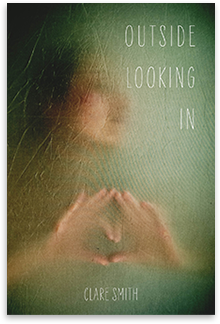
Gender and Weinsteinism
There’s one poem in Outside Looking In which several people have asked me about. Who is the protagonist in ‘Obituary’?
Even though you can’t libel the dead, and even though his behaviour was wrong, I know he’s survived by family who, I’m guessing, loved him. I don’t want to cause them more pain, so I’m not going to tell. I’m fairly sure some of them will know who he is anyway but those who don’t – there’s always a small possibility he changed his ways as he grew older – they don’t need my pain added to theirs.
It was true though, and not so remarkable in those days, that he hit on me when I was the newest and youngest member of his staff. He mentored me for some months and helped me become a more rigorous journalist. He was a couple of decades older than me but I suppose it never crossed his mind that that might be a deterrent to young women still only in her mid-twenties. He wasn’t very handsome either – a bit overweight with bad skin.
But he had the one thing men like him relied on – power. I had none. I was reliant entirely on his recommendation to keep my job, to be promoted or – as he decided – to be made redundant when it suited the organisation.
That story isn’t so bad, nor, sadly, so unusual. I got another job after a couple of years in the wilderness, up in the north west of England, and went on to some of my best work. If he hadn’t jettisoned me, I might never have considered travelling to Dubai to live with the man who eventually became my husband, with whom I’ve had two wonderful children, and who’s still here, after half a lifetime.
I don’t know how other women do it, claw back their sense of selfhood, their self-esteem, but I refused to understand what had happened, and for decades that gave me some protection. Writing Obituary was cathartic and looking back now I can feel a little sorry for him. He had so much – why did he feel the need to take more? Take what wasn’t his? Harm women who’d done him no wrong?
Well, because he could. Simple as that.
I read all sorts of novels these days, including thrillers, murder mysteries and police procedurals as well as improving high literature. And men like him still populate the pages of these books, still loom so large even if they’re more clearly (sometimes) or more often (sometimes) written as the bad guys. They’re there in the TV series we watch and the films we see.
And not just in fiction. The latest horrors emerging about the Met could not be clearer: these men are still with us, some as young as in their twenties, not just oddballs washed up from older generations, but new transgressors, otherwise ordinary Joes who’ve been brought up by women who somehow weren’t able to show them that this is not how you treat other people.
Women can more easily challenge them than a generation ago, even though it still remains horribly difficult to do so. They can be called out on social media, authorities better recognise the harm such behaviour does and support the victims a little better, sometimes.
Last week was International Women’s Day. I celebrated it by writing this:
International Women’s Day
They set our celebration in spring,
The weather’s upswing when the days
Are still cold, when easterly winds abrase
And chill you to the bone,
But when the sun can atone,
Streaming from a clear blue sky,
Redeeming you in its echoes of joy,
And warmth softens the earth
So that green shoots are birthed
And we are in thrall to
International Women’s Day.
I know there’s an International Men’s Day too (19th November). I can hear uncounted numbers of women protesting that men don’t need a day – it’s still a man’s world – but it was begun in 1999, by a bloke with good intentions: to encourage people to use the day to bring up issues that concern men and boys. So we can hope they tackle how they treat women.
But more than that, I want to tell you about the third People’s Day – International Nonbinary People’s Day. It’s on July 14th this year and has been celebrated for a decade already.
Most countries don’t recognise nonbinary as a legal gender, so they’re stuck with passports, driving licences and so on giving the gender they were assigned at birth. But a handful of countries do recognise it. Some Commonwealth countries do – Australia, Canada and New Zealand. Three European countries too – Denmark, Germany and Holland – and Bangladesh. There are also a couple of dozen USA states who let nonbinary people put ‘X’ on their driving licences in place of male/female. I’m not sure that’s respectful enough. But it’s a step in the right direction.
I still find not using he/she pronouns almost impossible if I think of the person as a man or a woman. English allows us they/them where the gender isn’t known but my brain’s so used to knitting identity into a binary gender I fail time and again to neutralise my language. I’m going to carry on trying though, and I hope you join me.
Post Views : 196